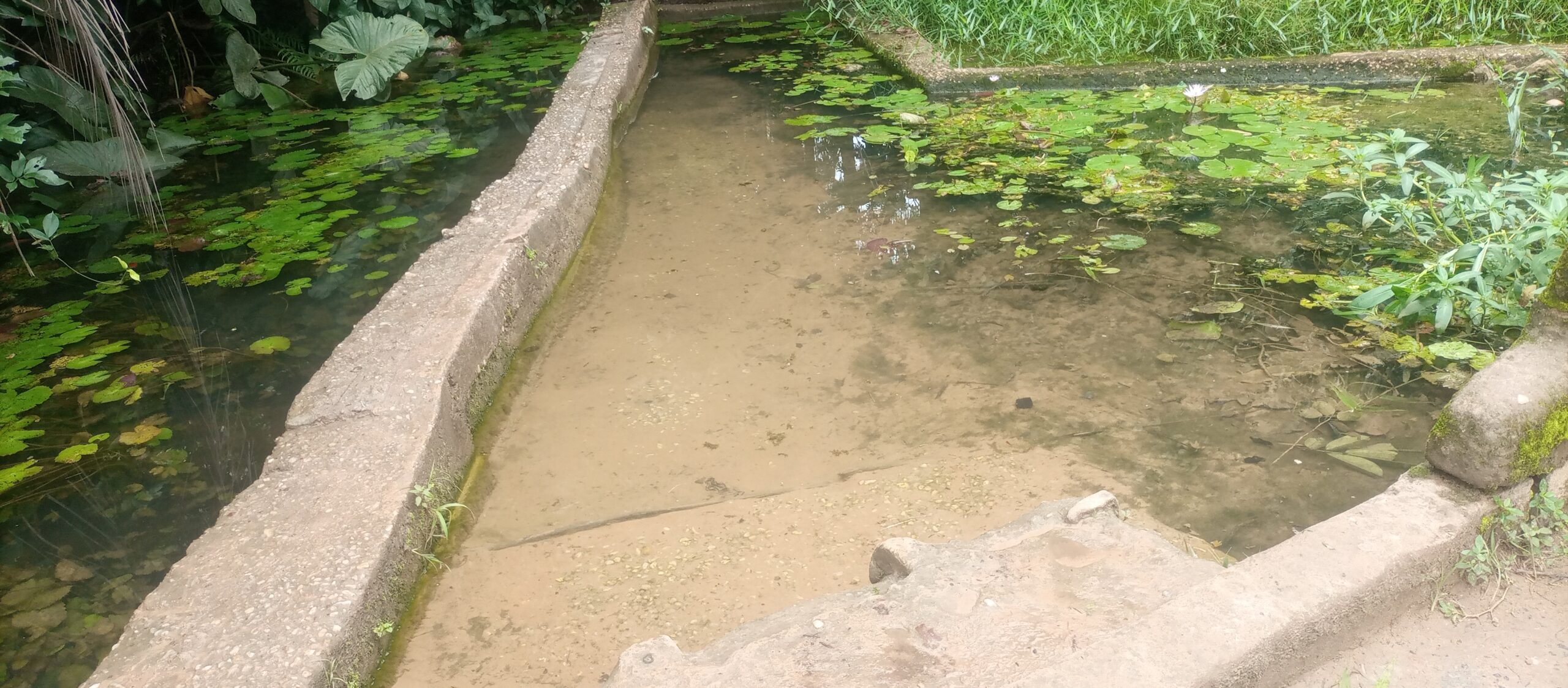Mbiabet Ikot Udo: Nigerian community which forbids mothers of twins, menstruating women

…local stream turns green when violated
BY ISAAC JOB
The motorcyclist meandered his way through the rough terrains, obliterated by potholes. And after about 3 hours from Ikot Ekpene, the neighbouring Local Government Area, he pulled over.
Welcome to Mbiabet Ikot Udo in Ini LGA of Akwa Ibom State, where mothers of twins and menstruating women are barred from fetching water in the only stream that supplies drinking water in the community.
Mbiabet Ikot Udo is a quiet typical African village in Akwa Ibom State, densely populated with green vegetation for farming activities. It’s not big in size but has the ambience of a rural setting.
When The Saturday Times visited the village, everywhere was calm, except the noise of children playing around in sand, reminiscent of many African villages.
This reporter was directed to meet the village council chairman, Chief Joseph Ekanem who was waiting to receive other weekend visitors as well.
Ekanem, after introductions, recalled the good old days of Daily Times as the premier newspaper in Nigeria. Without wasting time, the reporter briefed him on his mission in his community and he narrated how the tradition began in the village from their forefathers, stressing that doing away with this belief in the village will be difficult.
Ekanem said, “The tradition was inherited from our forefathers and doing away with it will take ages. Mothers of twins and women experiencing menstruation are not allowed to fetch water from the only stream that serves the community and six other communities.”
Ekanem listed the communities as: Mbiabet Ikot Efa, Mbiabet Ikot Otok, Mbiabet Otung, Ikot Asiyene, Ndot Ikpe and Mbiabet Ayenedia as affected communities who share the tradition and drink from the stream.
The stream is located down the village with a low concrete pavement dividing it into two sides for villagers to walk and fetch, without their legs touching it to avoid contamination, since the stream is stagnant. It has served the community through different generations despite discrimination against women.
Continuing, Ekanem said the barriers against women in the stream have been with the people since the days of their forefathers . “They had a goddess called ‘Essiere Ikpe’ which is maintained yearly through various sacrifices. The goddess blesses them with good things of life including farm yields and fertility.
The stream is directly underground and cannot run dry. A mother of twins and a woman experiencing her period cannot go to the stream to fetch water. That is the rule. The consequence of violating this rule is miscarriage or prolonged miscarriage if she is yet to deliver. This practice is still being upheld till date.”
Apart from mothers of twins and menstruating women, all women not in these categories are not allowed to fetch water from the stream on ‘Edet’ market day. “There is a particular day during the week called (Edet) market day which comes up once every week. During this particular day, no woman is allowed to fetch water from the stream”, he said.
Ekanem explained that the consequences of violating the said rule will result in the colour of the stream turning from its normal colour to green to show that the rule has been violated.
“When this happens sacrifices would have to be performed immediately to appease the goddess. The stream has helped us especially during dry season. When others will dry up this particular one will not dry up and people will travel from far distance to fetch water from the stream.
This stream has been like that because the community has been able to keep the tradition of not allowing any woman during (Edet) market day or mother of twins and menstruating women to fetch water from it”.
This reporter also met the chief priest of the community, Sunday Akpan Asuquo, who has the responsibility to perform sacrifices to appease the gods whenever the rules are flouted. He mentioned items of sacrifice to include a bottle of local dry gin, one white cock, one white ram, ten tubers of yam, a cartoon of beer, a crate of soft drinks and a keg of palm oil.
Others items include salt, pepper, crayfish with other condiments for cooking the items as well as an undisclosed amount of money for the slaughtering of the ram. He warned that above items must be cooked and consumed at the shore of the stream. “Once the items are cooked, no one is allowed to take anything home; everything must be eaten by the stream side.”
The chief priest also warned that if the items are not correctly mentioned, the goddess will be angry by sending bees and the place where the consultation was done will turn dark to the extent that people at scene will not be able to see themselves anymore, except the chief priest, whose sight will still be maintained. This shows that the goddess has rejected the sacrifice and the person who violated the tradition will have to return until the right items are brought for sacrificed.
This reporter also met with a mother of twins, Mrs. Comfort Etim who lamented the level of discrimination against women in the community adding that there is nothing she can do than to live with the system.
“I know the tradition and I have kept to it strictly so that I will not be a victim. When I want to cook and there is no one around to help me fetch water, I will suspend everything and wait until someone helps me out. Neighbours always help me fetch water for cooking, bathing and drinking.
If there is no help around whenever i need water, I will suspend whatever I want to do with water at that time, until someone helps me out. I don’t like the situation but there is nothing I can do, as long as I am in this community. If this tradition can be abolished, it will be good but my opinion wouldn’t count,” she bemoaned.
The youth president of the village, Emmanuel Akpan said youths have made several attempts to stop the tradition but to no avail as the stream dries up and the community loses the only source of drinking water.
“We have tried to stop this practice but each time we try, the stream will dry up and we will have no water to drink until we go back and appease the goddess and once that is done, the stream will come alive again. We don’t know if with time this tradition will go away but we believe it will not be in our generation.
If water is drilled everywhere in the community people will stop going to the stream to fetch water. But there is no place that water can be drilled here because of the arid nature of the area”, he said.
Meanwhile, the villagers have appealed to government at all levels to provide them with alternative source of water to keep the tradition at bay.
The village council chairman said if the community is provided with another source of good drinking water, it would save the local dwellers particularly the vulnerable women in the community.
READ ALSO: Iran to help Nigeria solve energy problem
“We are in dire need of road, water and electricity and other infrastructures. On your way coming here you saw the condition of the road; it is next to nothing. The electricity wire you see around was done through community efforts.
We bought the poles, but we could not afford a transformer and that is how it ended. Our biggest problem is road”.










